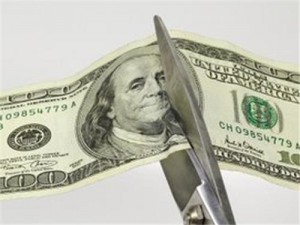 So you have finally decided to get control of your money and you are really committed to doing a monthly budget. Good for you!
So you have finally decided to get control of your money and you are really committed to doing a monthly budget. Good for you!
As I have stated many times before, one of the essential elements required for winning with your money is to have a working monthly budget.
As you develop the discipline of budgeting, you will encounter some bumps on the road. My wife and I ran into some budget busters early on in our financial wellness journey.
These are the kind of items that “surprised” us after we had finished our monthly budget. However, we learned our lesson and I wanted to share with you how to avoid these 3 budget busters:
- Irregular Bills: These are the items that are not due every month. For example, you may have your car insurance payments on a quarterly or semi-annual schedule. Or you might belong to a Home Owners Association (HOA) and the dues are paid every six months. You may also be responsible for your annual home insurance and property taxes. In either case, you need to plan ahead and set the money aside. Set up a line item in your budget so you can save for these bills. For example, if your home insurance is $1,200 per year, you need a line item in your budget for $100 every month.
- Birthdays: This might seem pretty basic, but when you are learning to manage every dollar, it can get tricky. In our household, we have some months that are more birthday heavy than others. What we have learned to do is the following: set a specific amount per person and then stick to that amount. You have to be rational. If you are deeply in debt and have no savings, birthday gifts take a secondary role. However, if you can afford it and you plan for it in your budget ahead of time, you can always cover birthdays in reasonable fashion.
- Food: When we first started doing a budget, this area was our biggest problem. We consistently went over in our eating out expenses and in some months, we also went over with groceries spending as well. The answer to this budget buster was to use the envelope system and use cash instead of our debit card. We started with the groceries category first by setting the amount we wanted to spend as a line item in our budget. Then twice a month (with each pay period) we would get half of that amount in cash and we would place it in an envelope. We only bought groceries out of the money in that “groceries” envelope. Once we ran out of money, we could not spend anymore on groceries. Since that worked well for us, we applied it to eating out expenses as well. By using the envelope system with cash, we have managed to control our food expenses.
I want to encourage you by saying that in spite of the bumps you might encounter, budgeting is really, really worth it. Don’t give up. Stay with it and you will see great results!
Presione aquí para la versión de este artículo en Español.
